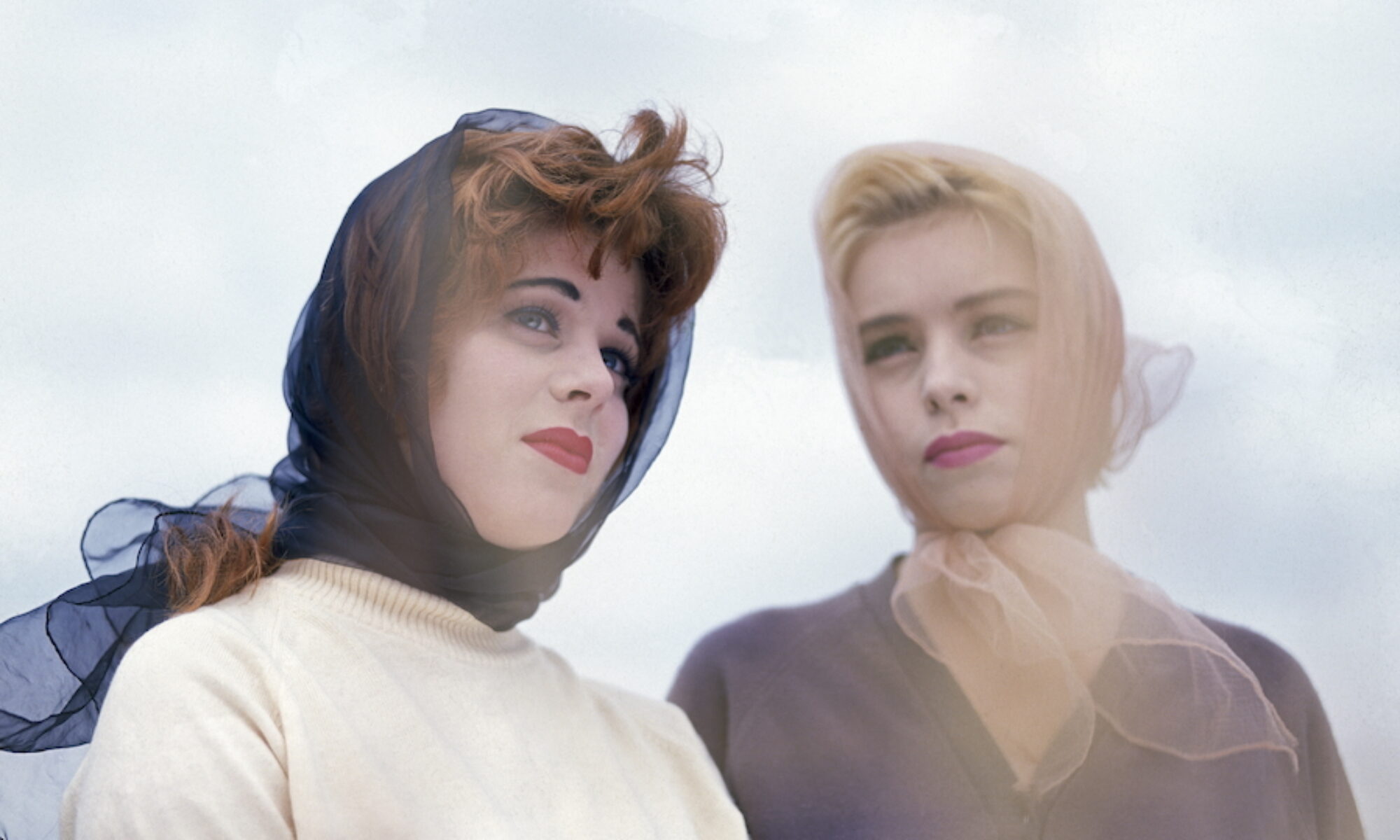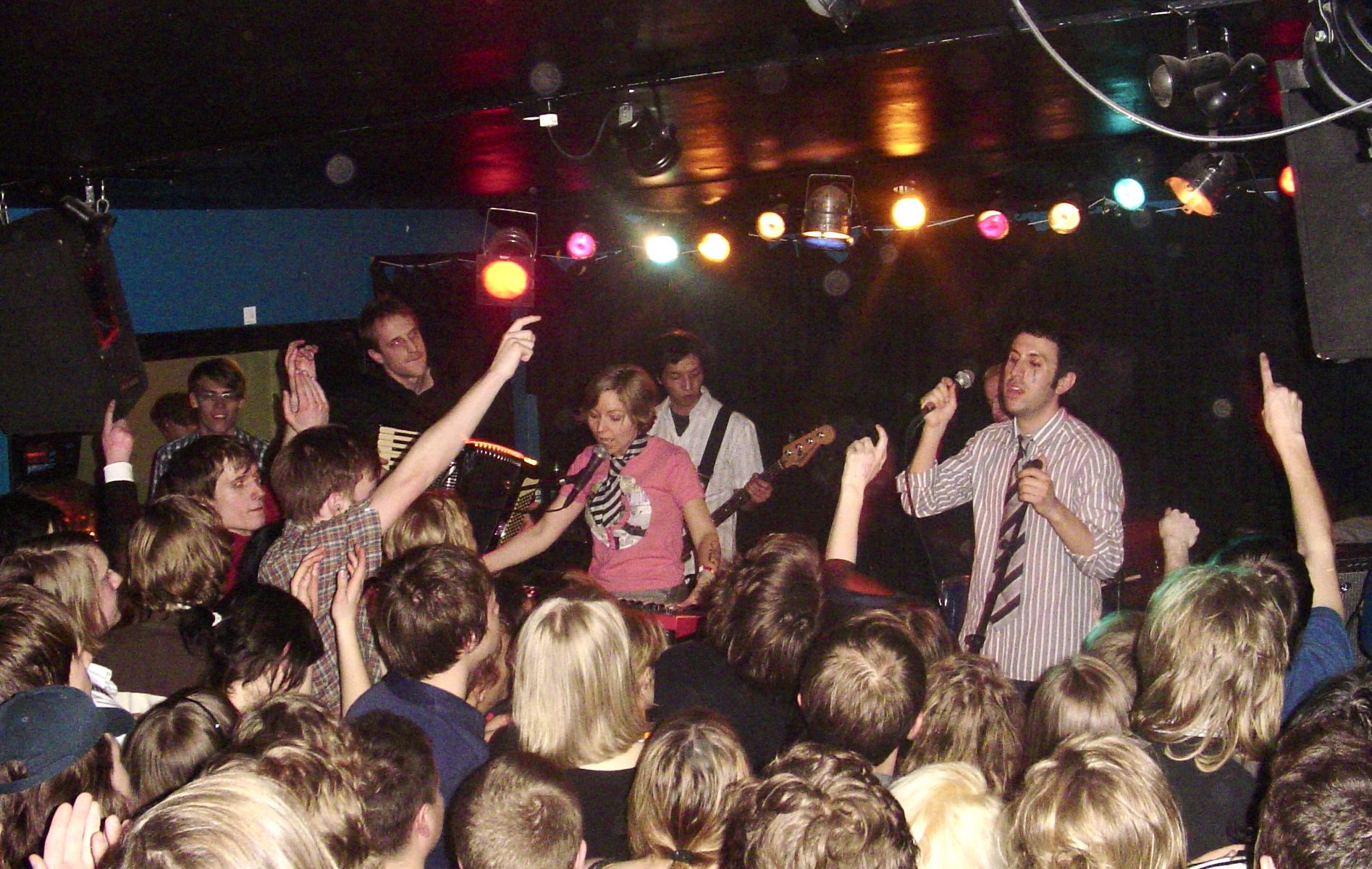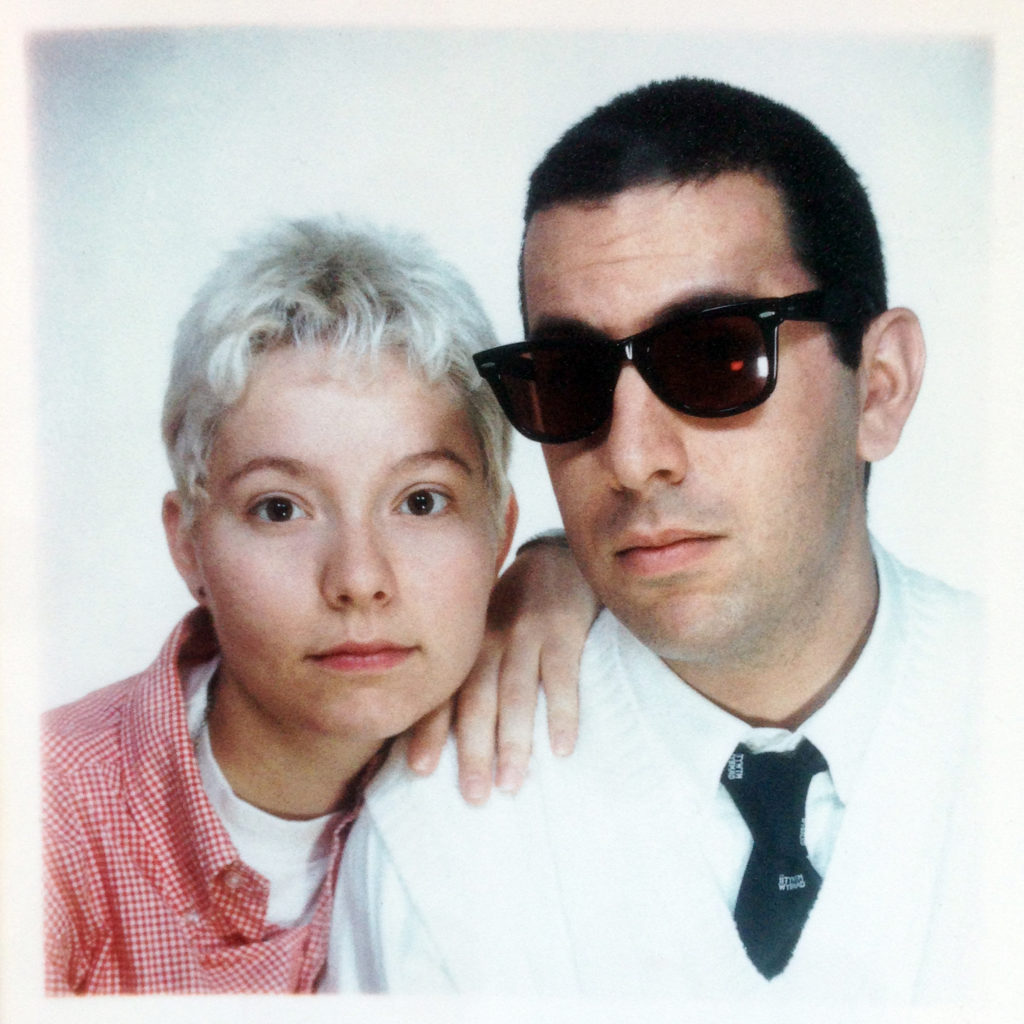
Coming from the land of Hal Hartley (uh, Long Island), My Favorite was/is a stylish, mod-ish punky pop band that formed in 1993, connected with us via zines and postcards, and played at some of our early shows in NYC. The band has existed in two time periods: 1993-2005, when (according to their Bandcamp) “teenage misfits gather around black mass of water called Lake Ronkonkama, release 7″s, release 2 LPs, go to Sweden, die.” Legend has it Michael Grace Jr. and Darren Amadio formed MF at SUNY Stony Brook, then added Andrea Vaughn, Gil Abad, and Todbot. The ’80s had just ended so it was an influence! They released their first cassette and a few seven-inches between 1993-1995, the latter on Harriet Records. They were quite active between that time and 2003, then called it quits and reemerged in 2014. (Grace was also in the Secret History as well.) We spoke with Michael on the eve of the first release in a series of three EPs via HHBTM and WIAIWYA. Interview by Gail / Images courtesy My Favorite
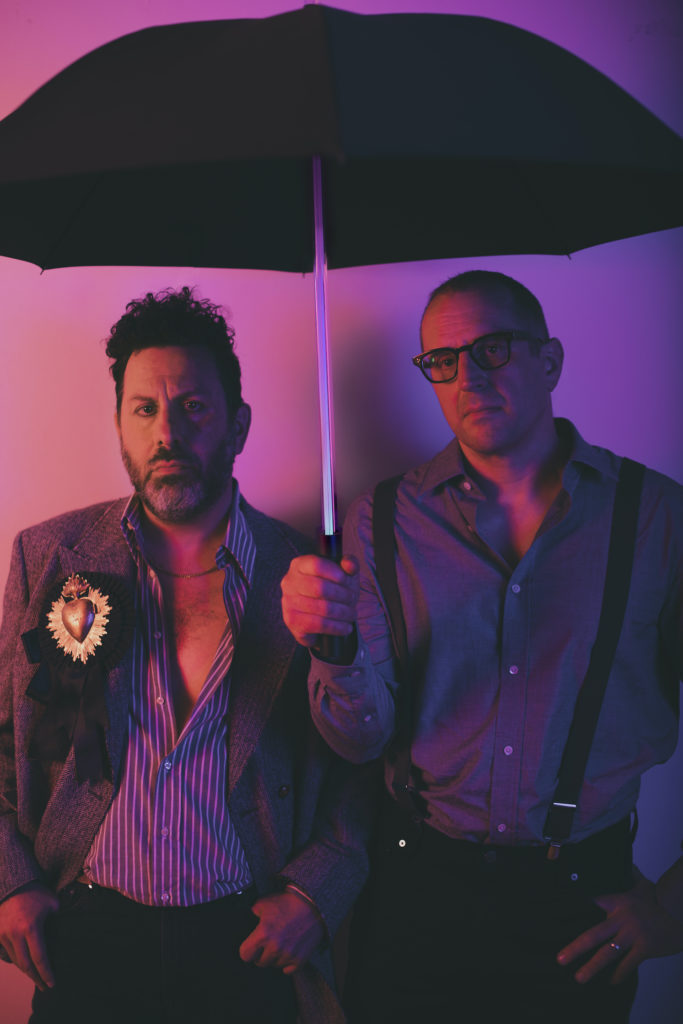
How are you holding up in the pandemic era?
I’m OK! Honestly the pandemic has been instructive in a sense. I was, and still am, worried for myself and my parents and my friends—COVID is serious stuff. But on a different level, the pandemic helped me realize just how isolated I had let myself become in the years prior to COVID. How comfortable I had gotten with my depression, and with being apart from so many things that used to bring me joy. Seeing people on social media freaking out about all the stuff they weren’t doing, all the stuff they were missing, it just shook me out of a certain complacency. Because things hadn’t really changed that much for me. So it encouraged me to take a hard look at my life and recommit to letting people in, to taking chances, to making my art. So seeing this first EP finally released, it means a lot to me. I’m still a bit battered and dazed, but I feel a little like Mad Max (Sad Max?!) emerging from a smoldering wasteland. Onwards!
What were you like as a child/teen? Was your family musical?
Gail! That’s a novella at least! I was a very awkward and introverted child, prone to daydreaming and getting lost in movies and books and drawing. I was sick a lot, and I didn’t really have many friends. My mother was insanely overprotective and her anxiety both affected and infected me. And those were the best years of my childhood! Becoming a teenager was much, much worse and that period was pitted with incidents of violence and abuse. All of that only pushed me further into my own inventions and fantasies. They became a kind of sanctuary to me. A haunted castle of self (Abandoned Castle of My Soul?!) You come to have a very complicated relationship with trauma when you start to believe that all your gifts have sprung from it. There is no My Favorite without all that darkness. But there was nearly no me, because of it. That takes a long time to sort out. ¶ Eventually music joined books and painting to really save me as a teen—and to help me find people whom I could feel seen by, and safe around. Perhaps that’s why I kept some of the spirit of that era with me in the music I made over the decades that followed. ¶ My grandfather on my mother’s side supposedly played violin, though I never saw or heard him play. He had a violin case, but I used to imagine that it was full of cash or secret ledgers. We were a Sicilian-American family in Queens, and the mythology of the mafia still remained during my early childhood. However, his son—my Uncle Joe—replaced Felix Pappalardi as the bassist in Mountain with Leslie West, and was a really great rock ‘n’ roll musician. He gave me my first guitar, but I couldn’t play it because I was left-handed. On my dad’s side were mainly cops.
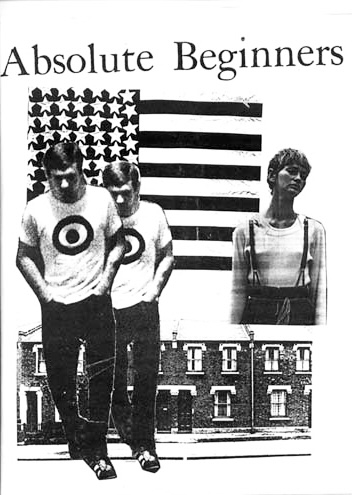
Tell us about the Long Island scene from your early days (zines, shows, etc.)
As a young teen, there was heavy metal and hardcore—so given those choices I opted for hardcore, but I wasn’t especially suited to it. I was the worst skateboarder in Lake Ronkonkoma. I did find our first drummer in a hardcore group and convinced him to join our 11th grade new wave band, which also included Darren Amadio, who went on to be my guitarist/musical partner for the next 20 years in My Favorite and The Secret History. Long Island was ahead of the curve in terms of radio stations and clubs though. WLIR was one of America’s first commercial stations dedicated to new wave (a decent documentary on it dropped a few years ago). Duran Duran used to fly into JFK, take a limousine out to Long Island to do an interview, and then straight back to play Madison Square Garden. WUSB—the college radio station in Stony Brook—was also great, especially Lister-Hewan Lowe’s reggae show called “Saturday’s A Party.” There were also dance clubs like Malibu and Spyze that were nearly on the level of places like Danceteria and Limelight. This was during my high school years, roughly 1987–1991. ¶ Once college started in the ’90s, it was really a mishmash of scenes and styles as indie and grunge came into prominence. But in the clubs—synthpop, industrial, and the new romantic stuff never really went away. We went to these little strip-mall goth clubs in the suburbs. It was laughable, but also sort of amazing. I listened to my fair share of Britpop—especially Suede, Blur, and Pulp. I was intrigued by techno and house but did not have the stamina necessary for raves. Still, I listened to stuff like 808 State, Future Sound of London, A Guy Called Gerald, and Mr. Fingers. I read the NME every week, but also started to send away for indie pop zines and follow labels like Teenbeat and K, and Kill Rock Stars. I wasn’t entirely sure about the music, but I loved the spirit. I found Riot Grrrl really inspiring. When I got Huggy Bear’s “Weaponry Listens To Love” LP, it really shook me, like an indie pop “Unknown Pleasures.” ¶ So there was really no organized indie pop scene on Long Island then. If we were on punk bills, we skewed our set a little heavy; if we were playing with synthpop or shoegaze bands we went that way. It worked for us. I wasn’t very committed to any sound or scene. I felt like we were doing something that created its own world. I know that sounds arrogant, but in a way—it proved true for many. ¶ There were a lot of zines on Long Island, mostly personal zines, and I did a big one-off with Andrea from MF called “Absolute Beginners,” which connected us to a myriad of people via the P.O. box. It was an innocent time, with the internet in its infancy, and the years peeled away slowly in the ’90s like a sunburn. Few cared about a weirdo pop band from Long Island, and we had no musical careerist aspirations at that time. So we went to school, worked some really menial jobs, and played whatever shows we could. At that time, it felt great to put out a 7” a year on these interesting little labels.
What was the indie pop scene like when you started out with MF and how did it change through the decades?
Our first single was “Go Kid Go” / “Absolute Beginners Again” in 1994, and then “The Informers” / “Detectives Of Suburbia” in 1995 on Harriet Records— which I was really excited to be on in no small part because of the Magnetic Fields single they had done. It also didn’t hurt that the label was named after my most beloved YA book, Harriet The Spy. In 1996 we did two split singles (“Working Class Jacket” and “Modulate”) and then spent nearly two years trying to make a record that wasn’t very indie pop at all. To be honest, I had been drawn to indie pop due to the leftist politics and “up with kids” energy of scenes and labels in the Pacific Northwest and D.C. Yet having our label run by a Harvard professor, we ended up in this little Northeast cabal of bands and small college shows. And it was, frankly, culture shock. We were legitimate working class and middle-class kids with Long Island accents. We all went to community colleges and state universities. Playing in Cambridge, at MIT, at Bryn Mawr, at Brown. It was wild. No amount of thrift store cardigans and barrettes could conceal a rich kid from us, and vice versa. We were treated as somewhat of a curiosity, playing decade-old synths and wearing the preppy clothes they had themselves self-consciously forgone. It was clear we were up to something with this soul boy/Benetton kid look. But what? It was some Fabulous Mr. Ripley shit and Brideshead wasn’t entirely having it. ¶ That said, I have some amazing memories of those years, especially mini-tours with Go Sailor and the Softies and Holiday and the Push Kings. But there were other nights we were playing with bands whose parents were famous right-wing Texan senators. I’m not saying this was that kid’s fault, but it was just a whole new world from the punk and goth scenes where we had started out on Long Island. A lot of wealth, and a lot of privilege. Occasionally it felt like we were in a kitschy bubble, and I really wanted to pop it. ¶ I also found the shambolic, half-trying aesthetic of some indie pop to reflect how little it all actually mattered to them. Like, was this just some sort of rumspringa before jobs in finance and summer houses in Cape Cod? By this point I really wanted to change pop the way my heroes did. But my depression and anxiety got deeper the more I failed to figure out where we belonged in all of this. We spent half a year doing demos for Minty Fresh, and when that didn’t amount to anything, we made the poor decision to max out our credit cards trying to make a slick, retro-sounding record that would be defiantly anti-grunge and anti-lofi. ¶ The biggest change in the indie scene for us came around the year 2000. The Love at Absolute Zero LP came out in 1999, and while it might have been polarizing, it was also quite acclaimed in certain circles, and solidified our fan base. Then when electroclash started, we had a second scene to not really fit into, but one in which we had some simpatico and overlap. Then with the emergence of the Strokes and the explosion of interest in NYC bands, we were able to hold our own in that scene, as we were a group with both post-punk and art rock influences. We actually headlined a CMJ show at Brownies in the early aughts that featured both the Walkmen and Interpol in probably their first years of existence. Though I continued to live a mainly monk-like existence, I did find the glamour and sleaze of these years exciting on a Warholian level. So between indie pop, electroclash, and the next wave NYC scene we had fashioned a kind of praxis, a Venn diagram for being My Favorite. Those were the best years, and I think it’s reflected in the songs we wrote during them.
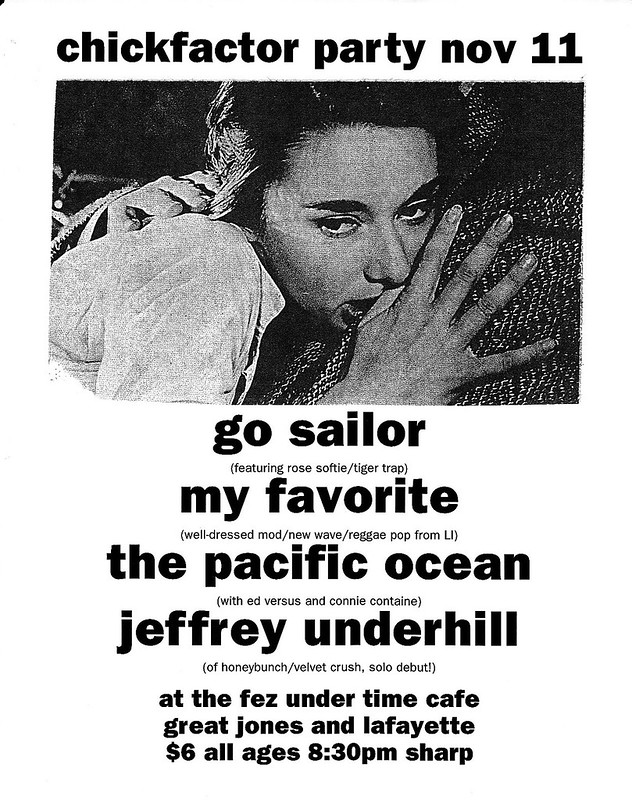
You played at a number of chickfactor things back in the day. Any memories or connections made at those?
My main memory of chickfactor was how it helped me learn about and get deeper into bands like Belle & Sebastian and the Magnetic Fields (that and being slagged off by Sleater-Kinney in the Jukebox Jury thing). So then to end up being able to eventually play with both those bands and have friendships with certain members (we actually talked Claudia Gonson into managing us for like three months), it was really special. I also remember being exposed to Momus and Nick Drake through chickfactor. I had a real appreciation for the lens through which your crew saw indie. There was just a really high curatorial quality, and whenever we were able to play a CF party or show it was a real thrill.
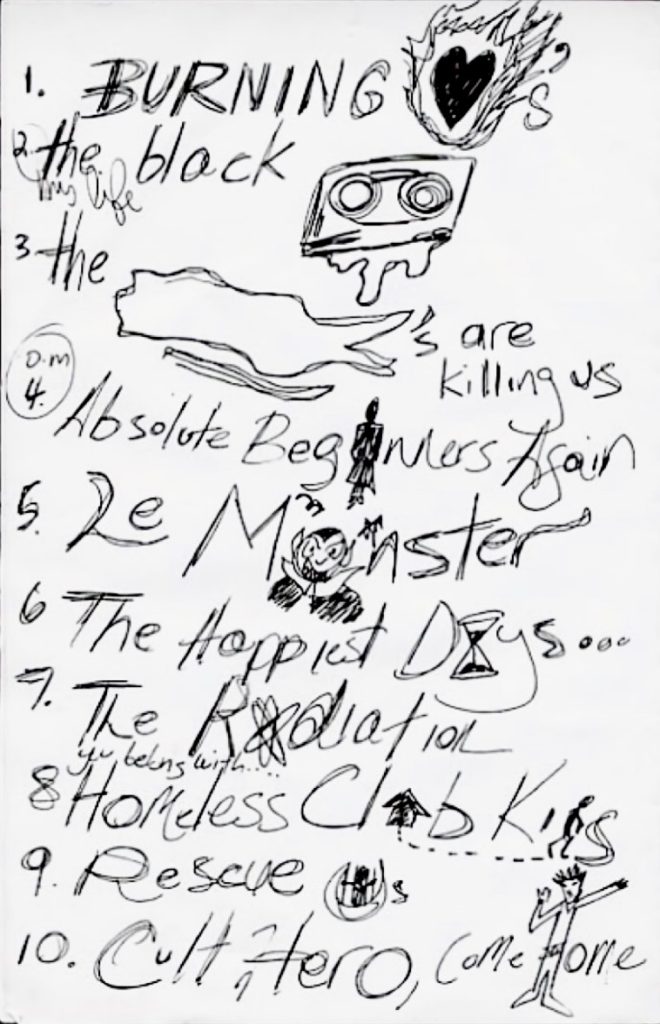
Do you see it as having a political side to it? Your band always seemed to.
It, as in indie pop? I think it could have and should have had an even more political side to it. Considering how important Riot Grrrl was to the formative years of the scene, I think it is disappointing that it didn’t. But I’ve touched upon some of the reasons it may not have. I remember a popular indie pop zine writer who was vocally pro–George W. Bush, and some of the uncomfortable silences that would follow when I challenged him. The vibe was that it was rude of me to take shots at this “nice, harmless bookish guy.” It drove me crazy. And now look where we are! I’m not saying that artists need to write political songs—they are very hard to do well. I had a few like “Working Class Jacket,” “Detectives of Suburbia,” and “The Informers,” but overall, that wasn’t my focus in any didactic way. I tried to write about life, and by doing that I think this dystopia of late capitalism emerged in our songs. However, I always thought that a band should, in their art and interviews and personas make it very clear where they stood. I really admired artists like Billy Bragg and Heaven 17 and the Style Council for doing that. If I couldn’t be in a band that talked about kicking fascists in the balls, I didn’t want to be in one at all.
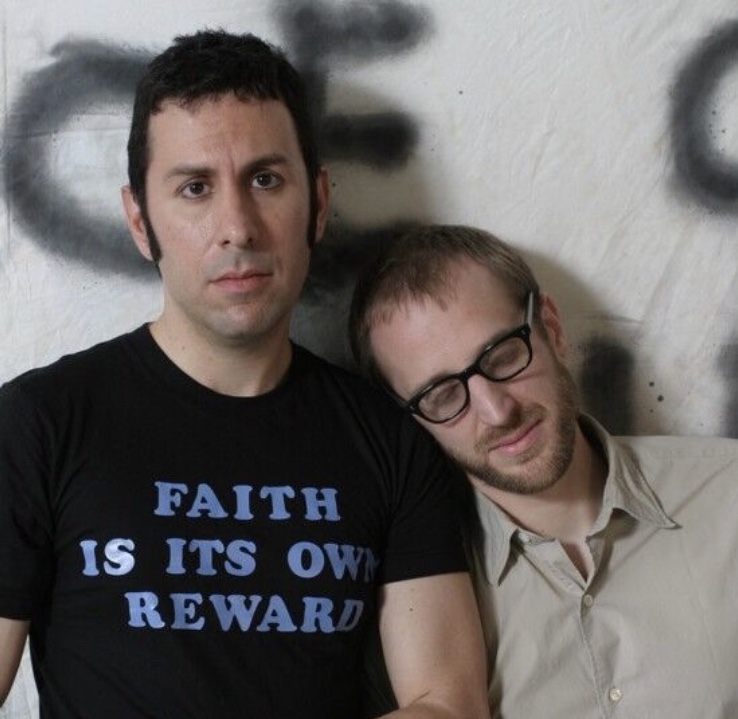
How do we save this country from evil (and idiocy)?
I’m really not sure, but it is clear we have to! I think for now, we support and protect all the people the Right wants to erase or harm, and we stay vocal and vigilant about how much peril we are in. Voting is part of it, but it’s also about solidarity. It’s about pushing back at the insane narratives that are poisoning our country. It’s also about expecting more from Democrats in an intelligent and strategic way. We are getting outschemed by Nazis. We just have to keep fighting and not get demoralized, no matter how bad it gets. We need as much Socialism as we can get this Nation to swallow.
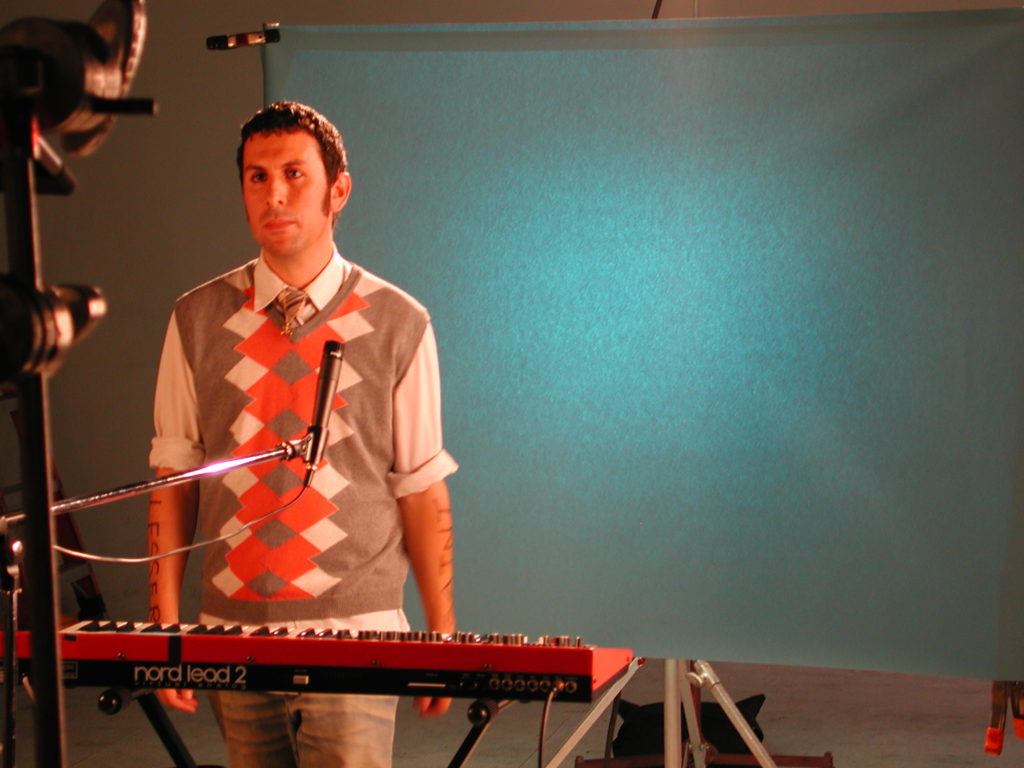
You guys seemed to have a very ’80s and very mod style back then. What were some of the things you were into then?
Yeah, like I mentioned before, Long Island was really the center of New Wave radio and culture on the East Coast via WLIR, Malibu, My Father’s Place, etc. I was just a kid in the ’80s but I do think some of that culture rubbed off on me. Seeing the punks, mods, and new wavers on the bus, and in the park. They seemed like Star Wars characters to me. These fantastical others that I wanted to know, and eventually—be. At around the age of 14 I experienced certain trauma, and after that I had less desire than ever to “be normal.” So these “freaks” became like saints to me. By the time the ’90s arrived, I was really intent on reclaiming that feeling and (hopefully) reimagining it into something new. As grunge emerged, I gravitated toward the mod/skinhead thing mostly to be contrary. The irony was that I was too poor and too ethnic to be accepted by the preps in the ’80s, but in the ’90s, in the context of a band, I could appropriate that look and try to make it my own. It was my way of saying “I am my own gatekeeper now.” Or actually, my own gatecrasher. I related to the original mods—working class kids who subverted Savile Row, subverted the “respectability” of the middle class, and became an unsettling mirror of it. Like a double agent. That’s what I was trying to do. So I blended ’80s prep/Ivy League (a lot of which you could get cheap in thrift stores as it was no longer trendy during grunge) with skinhead style and a sort of Italian mod thing, like how Marcello Mastroianni or Pasolini dressed. And honestly—I still dress the same way to this day.
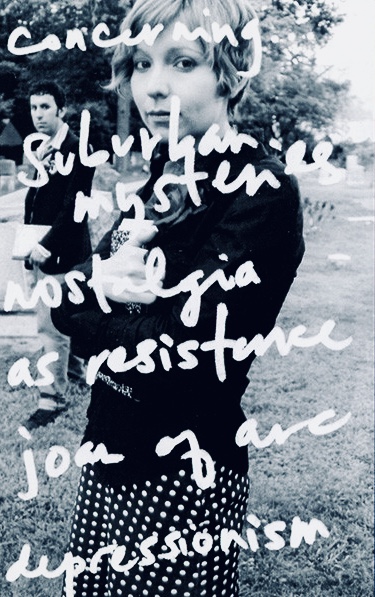
Who are your style icons?
Aside from the folks I just mentioned—Paul Weller in the Style Council, just fantastic looks one after another. Andy Warhol in the ’70s, with all the tweed and corduroy blazers and school ties and paint-splattered jeans. Jean-Michel Basquiat in the ’80s, making Ivy League look worn and weary in this slyly confrontational way. Lou Reed for just being so immutably “New York.” Bryan Ferry in his rich and bored phase. And of course David Bowie—especially during the period after Ziggy. The apocalyptic soul boy of “Young Americans” and “The Man Who Fell to Earth.” I’m also a fan of Vivienne Westwood and Alexander McQueen, though I tend to blend in their influence subtly. Let’s see, who else—James Dean. Marvin Gaye. Peter Murphy and Mick Karn in Dali’s Car. Agent Cooper.
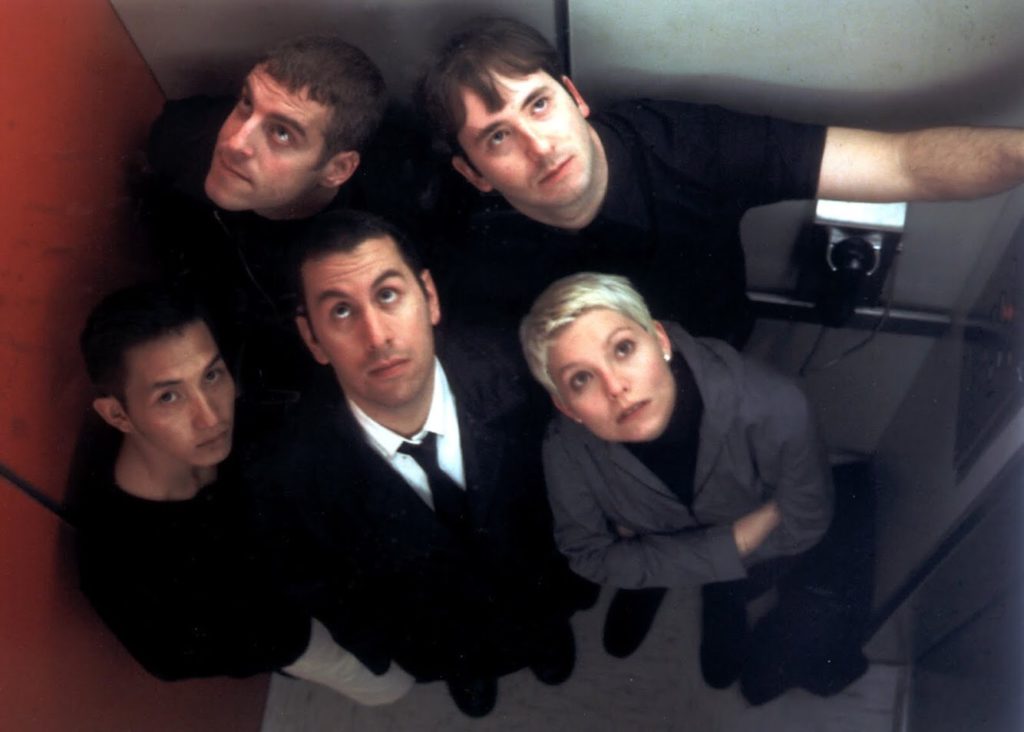
How would you describe your own personal style?
I’ve touched on a lot of it already. I’ve always been interested in taking style cues from scenes and circles I never had access to—like Ivy League and European couture and juxtaposing it with suburban and urban street styles. I like to mix in odd things like aristocratic British bog-wear lol—Barbour field coats, plaid caps and black rubber rain loafers. I like to make playful nods at my Sicilian heritage by wearing gold chains and saint medallions. I also love skinhead style and the ’80s/’90s “casuals” look—Burberry macs, Fila and Lacoste, khakis and soccer jerseys. I like to have fun and be ironic and give people a sense that something is just—off. It’s all a kind of performance art to me. Like “Who let this person into our club?” The answer is I let myself in, hit the buffet, scrawled “My Favorite Forever” on the bathroom mirror, and got the fuck out. ¶ I usually dress like an ’80s burnout or beach bum when I’m just hanging out. Especially in the summer. Weird t-shirts and cutoff jeans and sunglasses. Sneakers with holes in them.
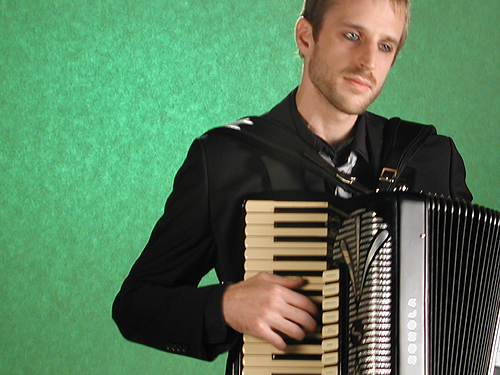
As someone who seems as big a Smiths fan as I was, how does it feel listening to their music now that we know what kind of person Morrissey is? He’s definitely a complicated character.
It is absolutely one of the strangest and most disenchanting experiences of my life to watch someone who was so important to me in my late teens/early twenties start to fall from grace and just keep falling. There isn’t a thing he says or creates now that contains anything of value. It’s just grievance and narcissism. And it’s gross. He is a deeply reactionary figure, and all he does for me now is serve as a reminder to be vigilant as you get older. Of your biases. Of your blind spots. I don’t even want to give him any more oxygen than that. But at least we still have Johnny.
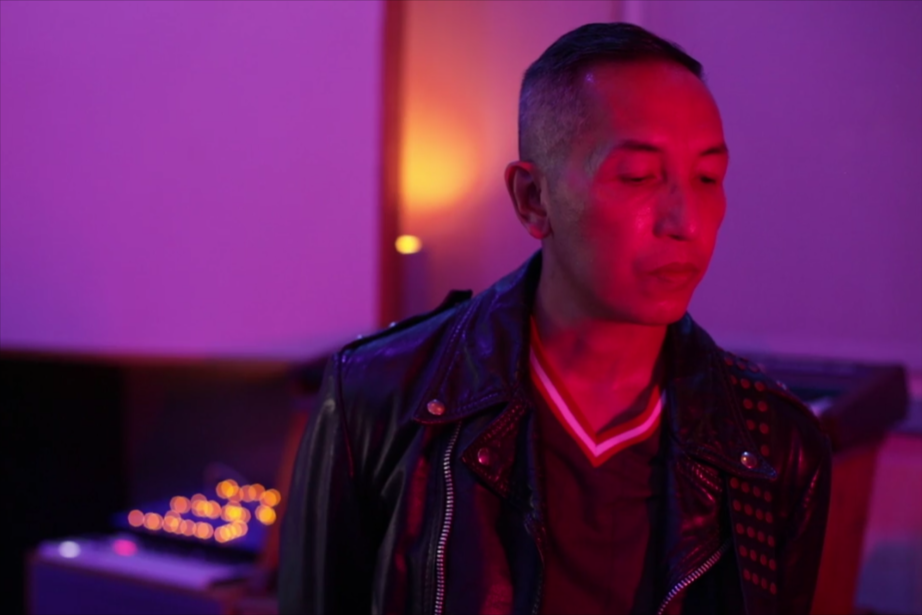
I feel like “miserablism” was a sort of goth, sort of nerdcore movement that never got explored as a thing.
I think you are probably right, but maybe that’s a good thing? Even as someone who has suffered from serious depression for most of his life, I wouldn’t want to be known as an artist who glamorized or commodified that sort of darkness. The world is still imbued with beauty, and each being has value, and none of us was created to suffer. I know my songs deal a lot with shadowy thoughts and feelings, but that’s not all they deal with. I believe in love and I believe we can heal—and help others to.
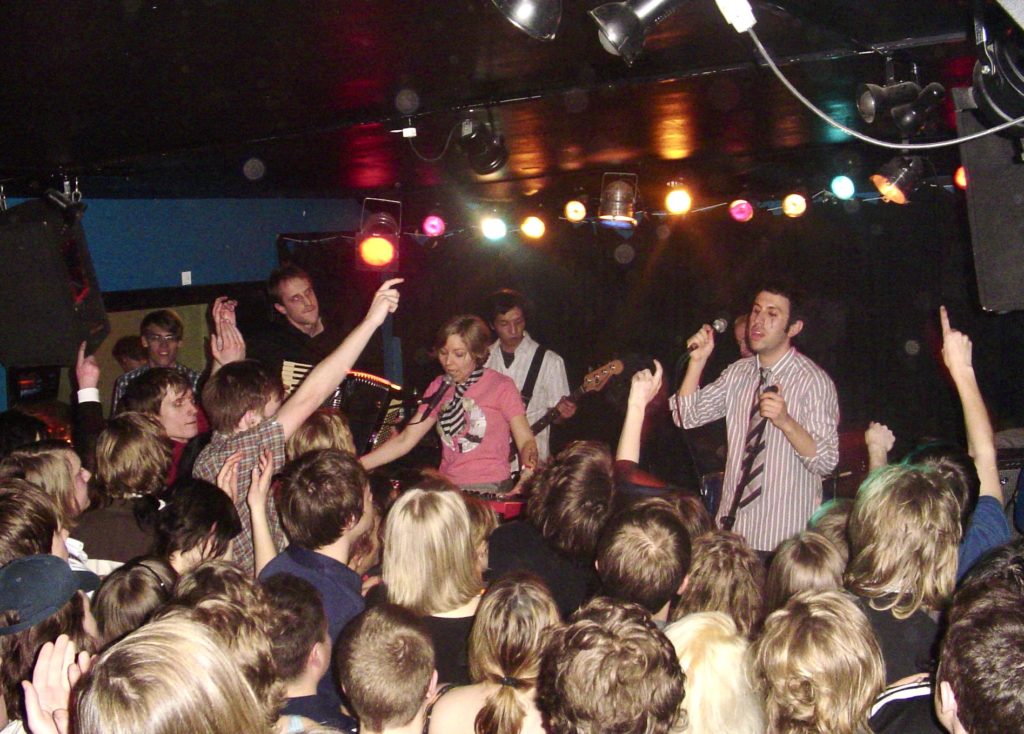
Why do you think My Favorite were big in Sweden?
Well, the boring answer is that one particular magazine and one particular national radio show in Sweden were very influential, and both of them championed us ruthlessly. But why did they? I think that’s the more interesting part of the answer. I’m not really sure. I think I have a certain respect for melody and rhythm, two classical attributes of pop that I think Swedes have a taste for. I also think that despite us using so many European reference points in our music, there was also something brash and reckless about us that owed more to America. Judging by the quasi-riotous crowds we’d draw in places like Gothenburg, I think the Swedish fans tapped into that. Understood that we were some really fucked-up kids, that it wasn’t a put on. I think that quiet storm of feeling in our music felt liberating to them. They tore off the plastic wrap, where other people couldn’t see past their own reflections in it.
What was the first record you bought?
I think it may have been Judas Priest’s Defenders of The Faith. Satanic Panic was a big thing on Long Island in the early ’80s and I was a textbook case of a 12-year-old really into the devil. At least in a Dungeons & Dragons way.
What was your first gig?
Hmmm, I think it was INXS!
Tour horror stories?
Gratefully, we haven’t been robbed or left stranded somewhere. But one time in Norway I remember our rental van getting grazed by a trolley car as we were hurtling the wrong way down a cobblestone street, and we were really close to colliding with it head on and being killed in a ball of fire.
What are some of the weirdest events you ever played?
In 1994 we played a DIY event called Vulvapalooza at the old Gas Station—the illegal East Village venue where GG Allin died. We sounded like OMD, and the punks and Riot Grrrls were just shaking their heads. We were four boys and Andrea. After we played, a young woman with like 11 safety pins through her face came up to me and simply said, “One vulva was not enough vulvas to play Vulvapoolaza.”
Who is your favorite lyricist ever and why?
Oh, that’s really hard. There are so many good ones. It’s pretentious to say that I was more influenced by certain writers and poets like Sylvia Plath or—God help me—Bret Easton Ellis, but in my earliest years that was probably true. So instead of discussing the pantheon let me give credit to a couple underrated people. Brett Anderson from Suede had a very distinctive lyrical style. He’s like a pop art vending machine full of apocalyptic pulp sci-fi novels. I remember being really into that. And Bernard Sumner is one of the best “bad lyricists” ever. There is something so awkward and artless about his lyrics, but like—they work, and his imagery feels uniquely idiosyncratic. When is “Blue Monday”? Who are the “Thieves Like Us”? What is “The Perfect Kiss”? I mean, no one wants me to wax on about Donald Fagen or Lou Reed in Chickfactor. (sure we do.—editor)
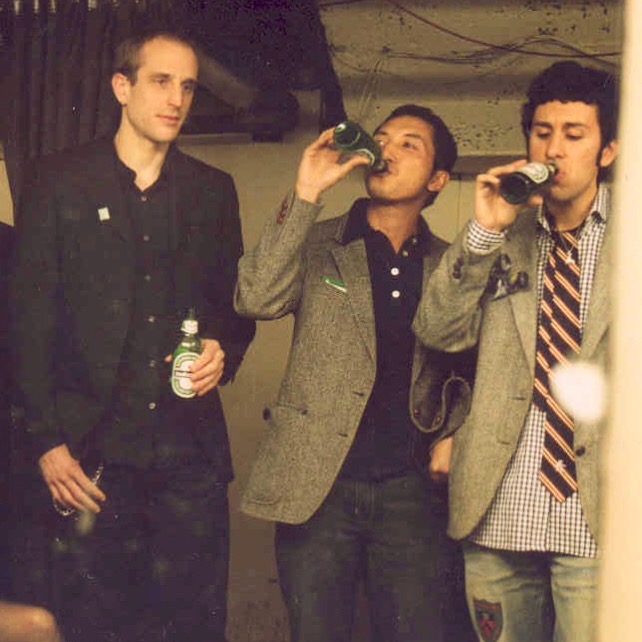
Do you have pets, kids, hobbies, a day job? Tell us more.
I do not have any pets or kids, though I love being an uncle to my amazing five-year-old niece Franny. She is literally my best friend. I think I’m too intense and crazy to have any “hobbies.” Everything I do I get really into, even if it is hitting golf balls at the local dilapidated driving range. I guess watching YouTube videos about every nerdy thing on earth would be my main hobby. Like “Who Was More Powerful: Gandalf or Darth Vader?” I’m not proud of it. I watch a decent amount of baseball and soccer. I have a couple day jobs but being a part-time art professor at the local community college is the one I enjoy the most. I’m working on a trilogy of YA novels set in the My Favorite Extended Cinematic Universe, but I don’t consider that a hobby—more a burden.
What are you reading, watching, listening to, cooking?
Fiction-wise I’ve been reading On Earth We’re Briefly Gorgeous by Ocean Vuong, and re-reading On Rockaway by Jill Eisenstadt. Nonfiction, I’ve been crawling through Sweet Dreams, a long oral history of the New Romantics. I watch way too much TV. I mean, I’m still watching Westworld long after most replicants jumped ship. I’m most excited for the upcoming final season of Atlanta. I’ve been listening to a lot of stuff—old and new—but Miserable Chillers, Swan Lingo, Holy Wire, and Scam Avenue have all released amazing music over the last few years. Cooking? I’m always trying to re-create my grandmother’s pasta dishes from my youth. Sicilian stuff with fried zucchini and red pepper flakes, Parmigiano Reggiano, fennel and sardines and the like.
What are some of your favorite records in 2022?
Kristeen Young’s The Beauty Shop. Drake’s Honestly, Nevermind.
What song is currently stuck in your head?
“To Turn You On,” by Roxy Music, but that’s because I just saw them at Madison Square Garden last night. The first arena show I’ve been to in maybe ten years. Bryan Ferry’s voice isn’t what it once was, but I had chills the entire show nonetheless. Beautiful.
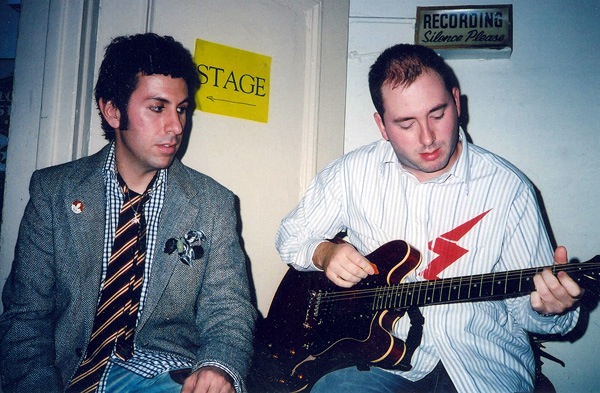
Tell us about the EP.
Tender Is the Nightshift: Part 1 is the first in a 3-EP series, and it is a return to My Favorite 17 years later with a skeleton crew of bandmates and a lot of machines and wires. It’s like returning to the city of your youth and finding it a rainy, neon-lit ghetto of ghosts. Which I am aware is pretty much the plot of Blade Runner. It’s a much more dancey/layered and synthetic soul record than anything we’ve done before. A luxury depression product. Or perhaps—a cheap knockoff of a luxury depression product. In all seriousness, doing this now feels like being in the after-hours of your youth. Some sleek steel and glass limbo with a hefty check that is soon to come due. I’m not sure what else to say about it except that we are still doing things in indie pop that others can’t or won’t. We have new stories to tell, and new vantage points from which to tell them, otherwise we wouldn’t bother at all. I have little interest in nostalgia, except as black magic. Anyway Kurt Brondo, Gil Abad and I are very excited and gratified to remake/remodel My Favorite this way. Give a listen!
What are your future plans?
Well, we have to finish these last two EPs, and there are songs on there that I can’t wait for people to hear. I’m going to try to get my YA published. I’d really like to travel again for the first time in a good while. And I’d love to play live, and we are working toward that. To be honest, I’ve been in survival mode for so long that the future is a really intangible concept to me. Yet—I always seem to find myself there.
10 records Michael cannot live without
You have to give me 15 otherwise I’ll have a panic attack. Also I’m not including The Smiths on principle right now—but they belong here. Lists are really difficult for me, but these have really been on my mind and turntable during the making of this EP series. OK! Not (necessarily) in order:
David Bowie, The Rise and Fall of Ziggy Stardust & The Spiders from Mars
Cocteau Twins, Heaven or Las Vegas
Lou Reed, Take No Prisoners
Marvin Gaye, In Our Lifetime?
New Order, Substance
Roxy Music, Stranded
Sade, Diamond Life
The Style Council, Confessions of a Pop Group
Donald Fagen, The Nightfly
Patti Smith, Horses
Prefab Sprout, Protest Songs
Destroyer, Kaputt
Dexy’s Midnight Runners, Don’t Stand Me Down
Frankie Goes To Hollywood, Welcome To The Pleasuredome
Macintosh Plus, Floral Shoppe
